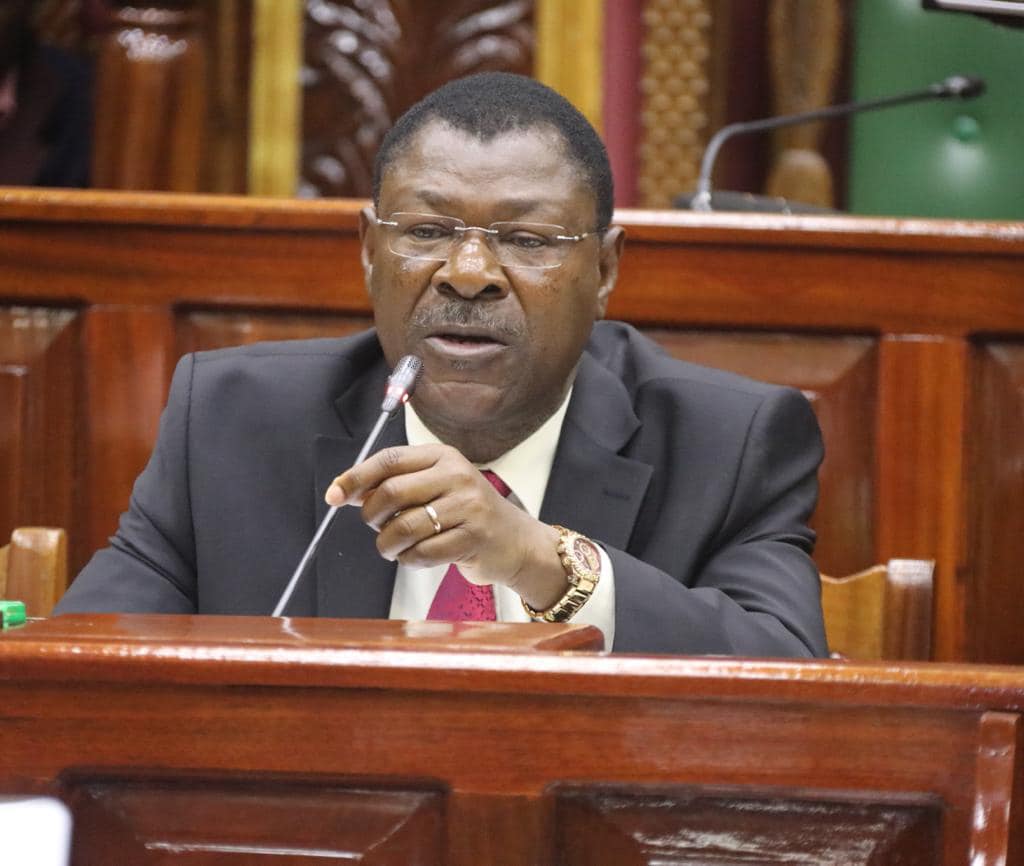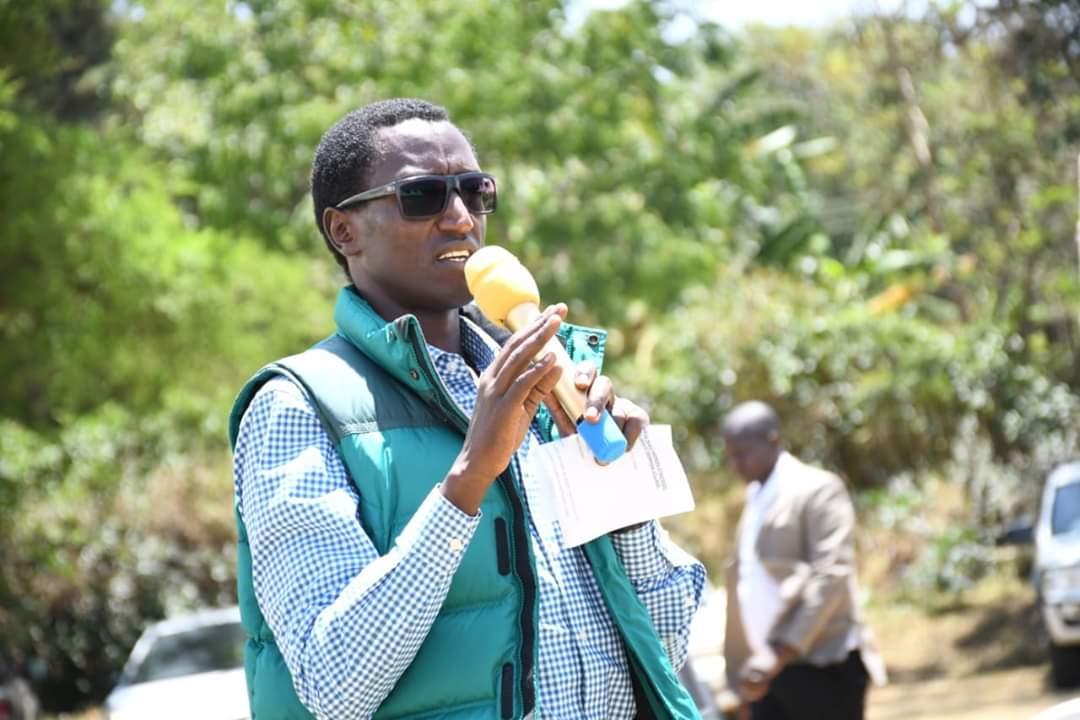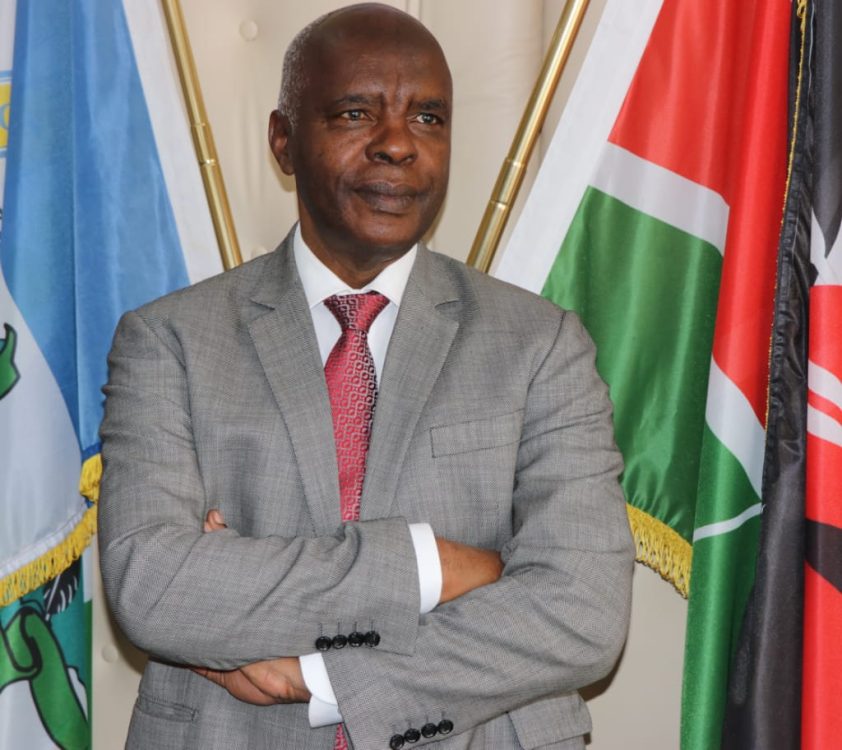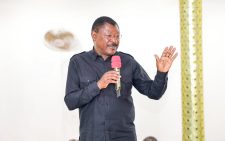Pave way for talks on IEBC review, Wetang’ula told

President William Ruto’s allies have filed a notice of motion in the National Assembly seeking to formally jump-start the bipartisan talks on appointment of new electoral commissioners and other demands made by Azimio leader Raila Odinga and his allies.
This marks the first formal step in the journey to the negotiations between the ruling Kenya Kwanza administration and opposition Azimio-One Kenya Coalition that are meant to end street protests over a raft of demands, ranging from reconstituting the Independent Electoral and Boundaries Commission (IEBC) to reducing the cost of living.
Yesterday, Leader of Majority Kimani Ichung’wah told People Daily he had on Friday filed the notice of motion asking to have the two chambers—National Assembly and Senate—to formally set up the team that will spearhead the talks.
The notice is now awaiting approval by National Assembly Speaker Moses Wetang’ula.
And in what amounts to ceding ground, Kenya Kwanza has consented to one of Azimio’s demands that the proposed team incorporates non-legislators as well as experts.
However, the alliance has declined to drop Eldas MP Billow Kerrow, a Jubilee legislator, from its team of seven as demanded by Azimio. Jubilee is affiliated to Azimio and although its leadership in the Legislature has signaled its intention to support the Kenya Kwanza administration, the party has not officially left the Azimio coalition. Azimio, which also has seven legislators in the talks team, has no representative from Jubilee.
According to Ichungw’ah, his office was yet to receive a formal complaint from the minority side regarding the name of one of the team members.
Draft motion
“We already wrote to the Speaker and communicated our names and draft motion for submission to the House for approval. We are ready for the bipartisan engagement and our members are ready,” Ichang’wah said. “We only hear them talk about the issue at rallies but they have not formally complained to my office.”
He promised to respond once Azimio files a formal complaint.
President William Ruto has indicated that he was ready and willing to engage with Raila on how to pick new electoral agency bosses through a bipartisan approach in Parliament.
“We have asked the Parliamentary leadership of both houses to consider our proposal for a bipartisan approach to addressing the matters raised by the Opposition as a priority,” the President is on record as saying.
He has, however, rejected a demand to revisit the August presidential election and for the government to open election servers for a forensic audit, saying the election process was concluded when the Supreme Court gave its verdict.
On Sunday, Raila also demanded that their counterparts come to the talks “with clean hearts” and respect their Azimio colleagues.
And in answering him yesterday, Ichung’wah said: “It is important to appreciate that we have engaged in this process in good faith and in a structured manner. We want to avoid the back and forth public engagements that are likely to stall the process.”
In the motion, Ichung’wah says that each side is free to invite, engage with and consider submissions from stakeholders and relevant constitutional and statutory bodies with a law reform mandate, including the Attorney General, constitutional commissions and independent offices established under Chapter 15 of the Constitution. “The joint select committee and each coalition may engage experts, professionals and such other technical resource persons as they may deem necessary,” reads the motion.
Joint committee
Although the Opposition has published its list of non-MPs to be incorporated in the joint committee, the majority side is yet to do so. However, it has tasked some MPs who are also lawyers to support the core team of negotiators.
Reads the motion; “The two Houses of Parliament establish a joint select committee consisting of fourteen (14) members, seven (7) each from the two coalitions in Parliament.” It stresses the need to recognise Parliament as the constitutionally mandated organ to consider such matters as the review of the existing law.
According to Ichung’wah, the mandate of the joint select committee will be to among others, facilitate bipartisan engagement in Parliament on the reconstitution of the IEBC Selection Panel on the recruitment of the chairperson and members of the IEBC.
The committee will also recommend legal, policy and institutional reforms to strengthen the commission and improve electoral systems and processes. This will, in turn, ensure that elections are administered in an impartial, efficient, simple, accurate, verifiable, secure, accountable and transparent manner. Further, the committee is expected to collate views on proposals to enhance inclusivity and bipartisanship in the electoral system.
The work of the committee is likely to be influenced by the findings of an electoral processes audit report presented to Parliament and which, sources familiar with it said, will shape the legislations that will be passed to make future elections more credible. The 1,000-page report was prepared by a consultant earlier engaged to audit Kenya’s electoral laws, policies, procedures and elections with a view to facilitating electoral reforms.
Final report
Once the talks are concluded, the joint select committee is expected to prepare a report and a draft Bill to be passed by Parliament. The Bill is expected to face little or no opposition during debate as it will be a product agreed on by both sides of the floor.
The committee will be expected to report to Parliament within 90 days after starting its talks. After this, the Leader of Majority and Leader of Minority will signify the approval of the final report and draft Bill or Bills by affixing their signatures before presenting the same to Parliament.
As a matter of procedure, the committee will have two co-chairs each appointed by the respective party leaders of the majority and minority coalitions. The two sides will provide joint rapporteurs to the committee but the official record will be the parliamentary Hansard.
Besides wananchi, the committee will receive views from experts, the business community, civil society representatives, religious groups, political parties, county governments and any other persons or institutions on matters relating to the Independent Electoral and Boundaries Commission and the electoral process.
From Kenya Kwanza, the committee members are Adan Keynan, George Murugara, Mwengi Mutuse, Lydia Haika, Senators Esther Okenyuri, Boni Khalwale and Hillary Sigei. Azimio, on theother hand, will be represented by Ledama ole Kina, Edwin Sifuna, Enoch Wambua, Otiende Amollo, David Pkosing, Millie Odhiambo and Amina Mnyazi.











